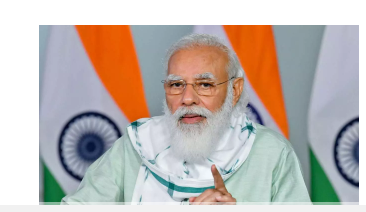In a bid to attain sustainability and conserve water, Prime Minister Narendra Modi launched the ‘Catch the Rain’ campaign on the occasion of world water day via video conferencing. This information was shared in a press release by the Prime Minister office. This campaign aims to conserve rainwater across the country and be mindful of conserving this resource. This campaign will run from March 22 to November 30- pre-monsoon and monsoon period in the country. It will be undertaken in both urban and rural part of the country.
During the launch, PM mentioned that rapid development is not possible without water security and effective water management. He also said that India’s development and self-reliance are dependent on water sources and water connectivity. PM also highlighted that fact better management of rainwater in India will reduce the dependency on groundwater and therefore it is important for this campaign to be successful.
Catch the rain campaign intends to work will all the stakeholder to create rainwater harvesting infrastructure as per the climatic condition and subsoil strata to ensure proper storage of rainwater. It aims to work for water conservation at the grassroots level through people’s participation. During this virtual event, PM also mentioned that apart from rainwater harvesting, it is also important to manage the river water in the country and called Ken-Betwa Link Project is also part of this vision. On this occasion, a memorandum of agreement was also signed between the Union Minister of Jal Shakti and the Chief Ministers of Madhya Pradesh and Uttar Pradesh, in the presence of the Prime Minister, to implement the Ken Betwa Link Project, the first project of the National Perspective Plan for interlinking of rivers.
As per the release from the Prime Minister office, this project involves the transfer of water from the Ken to the Betwa River through the construction of Daudhan Dam and a canal linking the two rivers, the Lower Orr Project, Kotha Barrage and Bina Complex Multipurpose Project. It will provide annual irrigation of 10.62 lakh ha, drinking water supply to about 62 lakh people and also generate 103 MW of hydropower. The Project will be of immense benefit to the water-starved region of Bundelkhand, especially to the districts of Panna, Tikamgarh, Chhatarpur, Sagar, Damoh, Datia, Vidisha, Shivpuri and Raisen of Madhya Pradesh and Banda, Mahoba, Jhansi and Lalitpur of Uttar Pradesh.

